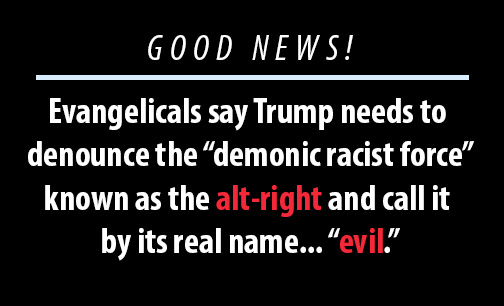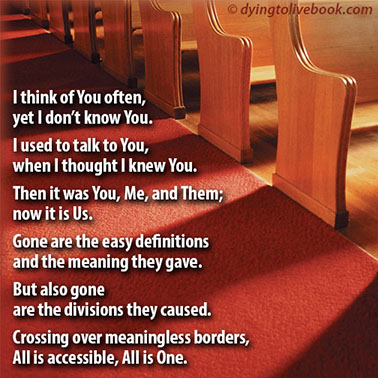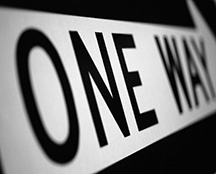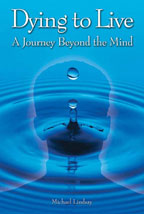This open letter asks Trump “to join with many other political and religious leaders to proclaim with one voice that the ‘alt-right’ is racist, evil and antithetical to a well-ordered, peaceful society.”

President Donald Trump needs to provide moral leadership and denounce the “demonic racist force” that is the alt-right before it further fractures the country, a group of evangelical leaders says.
Danny Akin, president of Southeastern Baptist Theological Seminary in Wake Forest, along with other conservative leaders from North Carolina and across the country have signed an open letter to the president stating that although he has denounced the KKK and neo-Nazis, and signed a joint resolution condemning white supremacy, he needs to go a step further.
“Now, we respectfully call upon you to respond to the resolution by speaking out against the alt-right movement,” the letter says. “This movement has escaped your disapproval. We believe it is important for this movement to be addressed, for at its core it is a white identity movement and the majority of its members are white nationalists or white supremacists. This movement gained public prominence during your candidacy for President of the United States. Supporters of the movement have claimed that you share their vision for our country. These same supporters have sought to use the political and cultural concerns of people of good will for their prejudiced political agendas. It concerned many of us when three people associated with the alt-right movement were given jobs in the White House.”
The letter, posted at unifyingleadership.org, goes on to say that the alt-right movement does not represent constitutional conservatism, because the constitution promotes the dignity and equality of all people.
“The core of the movement is the protection of white identity. Richard Spencer, a prominent leader in the alt-right movement, desires to transform our country into an ethno-state that serves as a gathering point for all Europeans.”
The letter asks Trump “to join with many other political and religious leaders to proclaim with one voice that the ‘alt-right’ is racist, evil and antithetical to a well-ordered, peaceful society.”
Failure to do so, the signers say, will lead to an expansion of the racial divide in America.
“We cannot be divided and still defeat this new demonic racist force,” the letter says.
The letter is a forceful and specific request in response to the events in Charlottesville, Va., on Aug. 12 where white-supremacists and counter-protesters clashed. A self-described neo-Nazi drove into a crowd of counter-protesters, killing a woman and injuring other people.
Trump said “many sides” were to blame for the violence and that there were “very fine people on both sides.”
The letter writers mention President George H.W. Bush, who they say worked with Pastor Edward Victor Hill II of Los Angeles to help African-Americans deal with their anger over exoneration of police officers involved in the beating of Rodney King in 1991.
“Our country desperately needs unifying leadership again,” the letter says. “We need you, President Trump, to lead us in such an effort. America needs your voice and your convictions to defeat racist ideologies and movements in every form that they present themselves. America is profoundly fractured and divided. We can envision the change that could emerge if you would provide the moral leadership we so desperately need for racial healing. Our polarized nation could unite around your leadership on this critical issue.”
In addition to Akin, five of his colleagues at Southeastern have signed the letter: Bruce Ashford, professor of theology; Keith S. Whitfield, dean of graduate studies and assistant professor of theology; Ryan Hutchinson, executive vice president; Jason Fowler, director of library services; and Walter Strickland, associate vice president of Kingdom Diversity. Other signers from North Carolina include the Rev. James D. Gailliard, pastor of World Tabernacle Church in Rocky Mount; J.D. Greear, pastor of Summit Church in Raleigh; Neal Thornton, pastor of Coats Baptist Church in Harnett County; and Ashley Marivittori Gorman, an author and Bible teacher in Durham. Several Southeastern seminary students also have signed.
One of the signers, the Rev. Samuel Rodriguez, president of the National Hispanic Christian Leadership conference, is a member of the president’s Evangelical Advisory Board.
BY MARTHA QUILLIN / mquillin@newsobserver.com / OCTOBER 01, 2017
Knowing the Ecstasy of the Infinite
Until reading this post from Jamie at Sophia’s Children; I didn’t know about Plotinus. After I googled him and read her link to him, I thought some of his ideas reminded me of Eastern philosophy and religions. He sounds like a real mystic (and philosopher of course) who was influenced by both the East and the West. Here’s a quote by him, “External objects present us only with appearances. Concerning them, therefore, we may be said to possess opinion rather than knowledge. The distinctions in the actual world of appearance are of import only to ordinary and practical men. Our question lies with the ideal reality that exists behind appearance.”
His words remind me of the poem below that I wrote years ago.Form blinds us to Reality.
Sensing its borders,
we believe its truth.
But that’s only the half of it.
A half-truth,
which is not enough.
More is desired.
Many attempt satisfaction
with more half-truths.
A futile effort.
An infinite number of half-truths
can never equal the Truth.
The Truth is boundless.
Reality is beyond the boundaries of form.
Discovered by the senses,
form is known by the mind.
Reality is beyond the mental maps of our making.
The discovery of Truth
begins when we put down our maps of half-truths.
 Image from Spitzer and Hubble. Courtesy of NASA, ESA, T. Megeath (University of Toledo) and M. Robberto (STScI).
Image from Spitzer and Hubble. Courtesy of NASA, ESA, T. Megeath (University of Toledo) and M. Robberto (STScI).
“You ask, how can we know the Infinite? I answer, not by reason. It is the office of reason to distinguish and define. The Infinite, therefore, cannot be ranked among its objects.
You can only apprehend the Infinite by a faculty superior to reason, by entering into a state in which you are your finite self no longer—in which the divine essence is communicated to you.
This is ecstasy [Cosmic Consciousness]. It is the liberation of your mind from its finite consciousness. Like only can apprehend like; when you thus cease to be finite, you become one with the Infinite. In the reduction of your soul to its simplest self, its divine essence, you realize this union—this identity.
But this sublime condition is not of permanent duration. It is only now and…
View original post 315 more words
How many bleeding hearts does it take?
I’ve been hesitant to post something on this blog that references politics. I believe the spiritual realm transcends the political world that divides many of us into liberal or conservative. But I am compelled to ask a question that challenges the dominate political narrative in the United States. Many Americans believe one political party or philosophy is more moral than the other. For decades, we’ve heard that the “conservative” or Republican philosophy promotes moral values. We’ve all heard of the term “Moral Majority” that was created by politicians and ministers. Somehow “liberal” has come to mean immoral or un-Christain to some. There was an exception to this phenomenon during the Civil Rights movement, when “liberal” politicians and ministers used the power of religion to promote a vision of political and social justice. But for most of the past decades, it has been: conservative = good morals, Christian, and real American; liberal = bad morals, anti-Christian, and maybe un-American.
What do you think and believe? Do the scriptures you read match the political philosophy that you endorse?
Why is there both pleasure and pain?
Why is there both pleasure and pain? Why not a life of total pleasure, and avoid pain? Does pain serve a purpose? And who are we?
A Tribute to how Christians Forgive
Here’s my poetic tribute to the Charleston 9. What an amazing group of people and church! All of us could learn much from how they reacted to this slaughter of the innocent. If you like it, please share with others. Thanks!
Wandering Souls
I used to envy folks who had a “home” solidly based in a faith tradition. I assumed they were very comfortable and felt safe. I felt like a lone traveler without a home. Now I find comfort in knowing there are many of us wanderers. Perhaps what we lack in superficial safety, we make up for with depth of experience. I recently came across a poem posted by Jamie Walters at Sophia’s Children that expresses this…
Millennials leaving church
 I read the follow article on CNN’s home page today. While some might be alarmed by the trends in the article, I find them encouraging. If someone never questions the religion they were raised in, or never leaves the country they were born in: how will they ever really experience and know the world for themselves? We must leave our homes and comfort zones in order to know what is real. It’s kind of like: how can a fish know what water is unless it jumps into the air? As Mark Twain put it, “Travel is fatal to prejudice, bigotry, and narrow-mindedness.” So I think some of these millennials are religious travelers, and when they return or settle down, their home will be on a much more solid foundation than those who never left. Perhaps the millennials will discover what Paul Tillich described as “the God beyond God.” The poem in the church pew photo is one I wrote during this kind of journey (which never ends).
I read the follow article on CNN’s home page today. While some might be alarmed by the trends in the article, I find them encouraging. If someone never questions the religion they were raised in, or never leaves the country they were born in: how will they ever really experience and know the world for themselves? We must leave our homes and comfort zones in order to know what is real. It’s kind of like: how can a fish know what water is unless it jumps into the air? As Mark Twain put it, “Travel is fatal to prejudice, bigotry, and narrow-mindedness.” So I think some of these millennials are religious travelers, and when they return or settle down, their home will be on a much more solid foundation than those who never left. Perhaps the millennials will discover what Paul Tillich described as “the God beyond God.” The poem in the church pew photo is one I wrote during this kind of journey (which never ends).
(CNN) Christian life is a set of sacred traditions — an unbroken circle, in the words of an old hymn — connecting generations of Sunday school stories, youth ministry morals and family gatherings sanctified by prayer.
In modern America, that circle may not be completely severed, but it is wobbly and severely bent, according to a new landmark study conducted by the Pew Research Center.
Released Tuesday, the survey of 35,000 American adults shows the Christian percentage of the population dropping precipitously, to 70.6%. In 2007, the last time Pew conducted a similar survey, 78.4% of American adults called themselves Christian.
In the meantime, almost every major branch of Christianity in the United States has lost a significant number of members, Pew found, mainly because millennials are leaving the fold. More than one-third of millennials now say they are unaffiliated with any faith, up 10 percentage points since 2007.
The alacrity of their exodus surprises even seasoned experts.
“We’ve known that the religiously unaffiliated has been growing for decades,” said Greg Smith, Pew’s associate director of religion research and the lead researcher on the new study. “But the pace at which they’ve continued to grow is really astounding.”
It’s not just millennials leaving the church. Whether married or single, rich or poor, young or old, living in the West or the Bible Belt, almost every demographic group has seen a significant drop in people who call themselves Christians, Pew found.
The drops have been deepest among two of the country’s most formidable faith traditions: Catholics and mainline Protestants, so-called for their prominence in American history. At the same time, Hinduism and Islam, religions tied to recent immigrants, according to Pew, have made small but significant gains. While they have declined as a percentage of the overall population, the number of evangelicals has remained relatively steady in the past seven years.
Because the U.S. census does not ask questions about religion, Pew’s survey, called “America’s Changing Religious Landscape,” provides one of the most reliable sources of data about the country’s religious demographics. Based in Washington, Pew calls itself a nonpartisan “fact tank” and regularly produces vast and detailed studies of religion.
People who profess no faith affiliation — often called “nones,” as in “none of the above” — now form nearly 23% percent of the country’s adult population, according to the Pew study. That puts the unaffiliated nearly on par with evangelicals (25.4%) and ahead of Catholics (about 21%) and mainline Protestants (14.7%).
Seven years ago, according to Pew’s previous study, the unaffiliated formed about 16% of the population, mainline Protestants were about 18%, Catholics were about 24% and evangelicals 26.3%.
Looking at the long view, the generational spans are striking. Whereas 85% of the silent generation (born 1928-1945) call themselves Christians, just 56% of today’s younger millennials (born 1990-1996) do the same, even though the vast majority — about eight in 10 — were raised in religious homes.
To put it simply: Older generations of Americans are not passing along the Christian faith as effectively as their forebears.
“It’s not as if young people today are being raised in a way completely different from Christianity,” said Smith, the Pew researcher. “But as adults they are simply dropping that part of their identity.”
While Pew’s study will likely to cheer the hearts of atheists, the rapid rise of religiously unaffiliated Americans hasn’t necessarily spawned a generation of infidels.
Just 3% of the “nones” call themselves atheists, a small bump from 2007, when 1.5% did the same. Four percent say they are agnostic, meaning they don’t know if God exists, a gain of 1.6 percentage points from seven years ago.
“We are very cognizant that this does not mean there’s been a straight-up spike in nonbelievers,” said Paul Fidalgo, communications director for the Center for Inquiry, a secular advocacy group. “But it’s still really good news to see a whole generation of people who are making their own decisions about belief, religion and spirituality.”
It’s also good news for strict church-state separationists, Fidalgo said, especially those who want to see traditional religious morality disappear from debates over women’s health, abortion, same-sex marriage and climate change.
While the study isn’t likely to surprise many mainline Protestants, it throws their decades-long collapse in membership into stark relief. Almost every American town is dotted by historic Episcopal, United Methodist, Evangelical, Lutheran, Presbyterian and Congregationalist churches. Increasingly, those churches are empty of young faces. Just 11% of millennials call themselves mainline Protestants. (Only 16% identify with Catholicism.)
Of America’s major faiths, mainline Protestants have the worst retention rate among millennials, with just 37% staying in the fold, Pew found. By contrast, nearly two in three millennials raised without a faith continue to eschew organized religion as adults.
The collapse of American Christianity can’t simply be laid at the feet of religious leaders, demographers say. There are bigger societal swings in play: Americans are marrying later, increasingly to spouses who don’t share their faith, and having fewer children. (Mainline Protestants have particularly low birth rates.)
Other experts blame innovations such as the rise of the Internet and social web, where religions can be fact-checked in real time and seekers can find communities of like-minded iconoclasts.
But Christian leaders still bear some responsibility for not connecting with younger believers, said L. Gregory Jones, a senior strategist for leadership education at Duke University in North Carolina.
Many young Christians seemed bored by church, he said, pointing to youth ministers as particularly ineffective at engaging their intellect. One study cited by Jones showed that nearly 70% of full-time youth ministers have no theological education.
“Christianity in the United States hasn’t done a good job of engaging serious Christian reflection with young people, in ways that would be relevant to their lives.”
Instead, many Christian denominations have been riven by internal struggles over homosexuality, particularly in the last decade. While most millennials back gay rights, according to separate surveys, they are more interested in engaging with the wider world than holding endless debate over sexual morality, Jones said.
“If it is the case that millennials are less ‘atheists’ than they are ‘bored,’ then serious engagements with Christian social innovation, and with deep intellectual reflection (and these two things are connected), would offer promising signs of hope,” Jones said.
A Dream about Wisdom, the Divine Feminine
 I wrote down the following in the Fall of 2013…
I wrote down the following in the Fall of 2013…
I had a dream last night. In the short dream, I see the base of a tree. Grayish crackling bark with a green stem growing through the tree’s skin. I see roots from the stem pushing into the tree. I think that must not be good (for the tree at least). I also notice that the trunk splits before it enters the ground; creating an arch above the ground that I can see through. I pull on the green stem and remove it from the tree. Then I look through the archway. There are webs and other things partially blocking the view. So I use the stem to brush them away. Then I see light like a sunrise coming through the tree’s opening, and I catch a glimpse of a young woman walking on the other side. She comes from behind the tree to stand by its side. We see each other face to face. And we both say at the same time, “It’s you! Where have you been?” We kiss, and a strong sense of love and reconnection fills me.
Since then I’ve wondered what the dream could mean. I knew this dream sequence wasn’t about a romantic kiss or the sexual attraction of some long-lost love. But what was this deep hunger for someone lost to me? Were we together at birth, but then separated?
It hit me recently while reading the book “Beauty, The Invisible Embrace.” In the chapter, “Attraction: the Eros of Beauty,” John O’Donohue quotes the Book of Wisdom 8:2-4…
“She it was I loved and searched for from my youth;
I resolved to have her as my bride,
I fell in love with her beauty.
Her closeness to God lends lustre to her noble birth,
Since the Lord of All has loved her.
Yes, she is an initiate in the mysteries of God’s knowledge,
Making choice of the works he is to do…”
And then this from the Book of Wisdom 6:12-17…
“Wisdom is bright, and does not grow dim.
By those who love her she is readily seen,
And found by those who look for her.
Quick to anticipate those who desire her, she makes herself known to them.
Watch for her early and you will have no trouble;
You will find her sitting at your gates.
Even to think about her is understanding fully grown;
Be on the alert for her and anxiety will quickly leave you.
She herself walks about looking for those who are worthy of her
And graciously shows herself to them as they go,
In every thought of theirs coming to meet them…”
The feminine aspect of God; that’s what I’ve been suppressing. She had to find me in a dream while I slept. When I’m awake, I listen to the voices of convention and avoid her wisdom. She was my birthright, but I’ve listened to our patriarchal culture’s understanding of God. I hope to embrace Sophia and the wholeness of God.
In this regard, I found this website quite interesting…
http://whenthesoulawakens.org/the-divine-feminine_275.html
Here is a wonderful quote from the linked page…
“What we do not realize is that this patriarchal denial affects not only every woman, but also life itself. When we deny the divine mystery of the feminine we also deny something fundamental to life. We separate life from its sacred core, from the matrix that nourishes all of creation. We cut our world off from the source that alone can heal, nourish and transform it. The same sacred source that gave birth to each of us is needed to give meaning to our life, to nourish it with what is real, and to reveal to us the mystery, the divine purpose to being alive.”
Who’s voice did they hear?
Four rescuers hear a voice say “help me.” It comes from a car with a dead mother and baby who wasn’t conscious. Who’s voice did they hear? Please click on the link below (not the image). There will be a short commercial before the news video.
http://www.cnn.com/video/api/embed.html#/video/us/2015/03/10/ac-rescuers-found-baby-alive.cnn
Is Jesus the “only way to God?”
 “Jesus said to him, ‘I am the way, and the truth, and the life. No one comes to the Father except through me.’”
“Jesus said to him, ‘I am the way, and the truth, and the life. No one comes to the Father except through me.’”
Every time I hear someone quote John 14:6 as proof that the Christian religion is the only way to God, I cringe. Is it possible that there is a God that condemns people because they don’t follow the correct religion? I know there are plenty of religious fundamentalists (in particular Muslims and Christians) who do believe their religion is the only true faith, and everyone else is going to hell.
I can’t imagine God is that small. Could it be that Jesus is “one way to God,” but not the “only way to God?” And that His message is more about a way of living, and less about a way of avoiding torment in an afterlife?
I found a refreshing perspective about John 14:6 by Carl Gregg on the patheos website. I hope you’ll check it out. In case you don’t read the entire article, I like this from his conclusion…
“As I have continued to wrestle with the reality of religious pluralism, I have found the following two short sayings helpful. First, theologian Huston Smith says that God is “defined by Jesus, not confined to Jesus.” Second, Episcopal Bishop John Shelby Spong has said, “I walk the Christ-path into the mystery of God, but I do not believe that God is a Christian.” The common core to both of these slogans is that one can affirm the validity of other religious traditions without abandoning Christianity.”
Lectionary Commentary: “A Progressive Christian Reading of John 14:6” (for Sunday, May 22, 2011).

